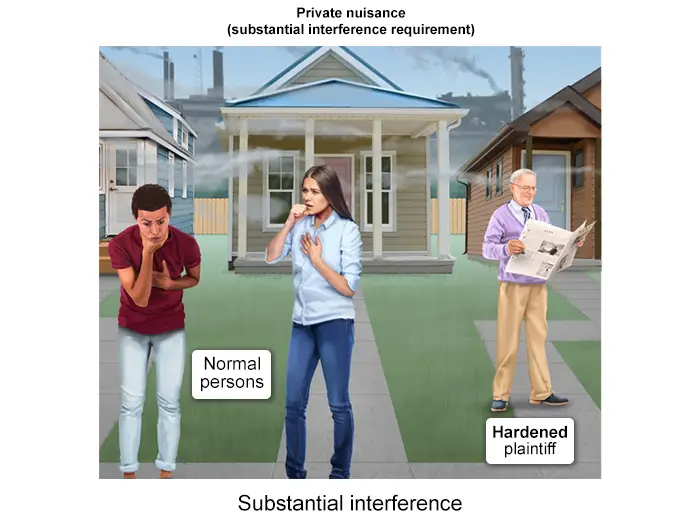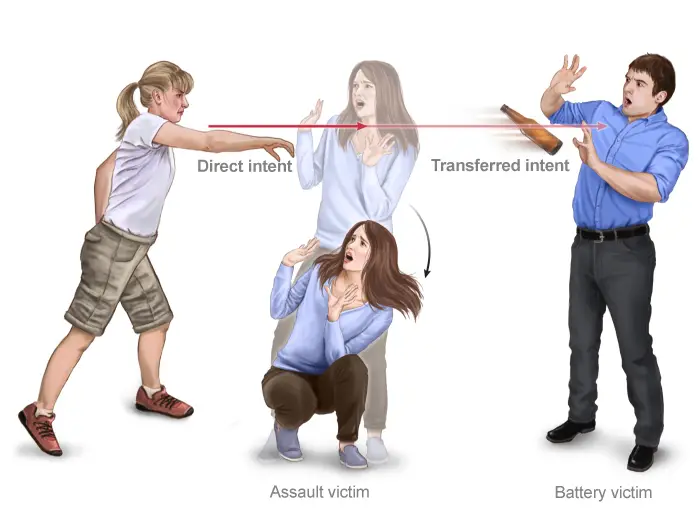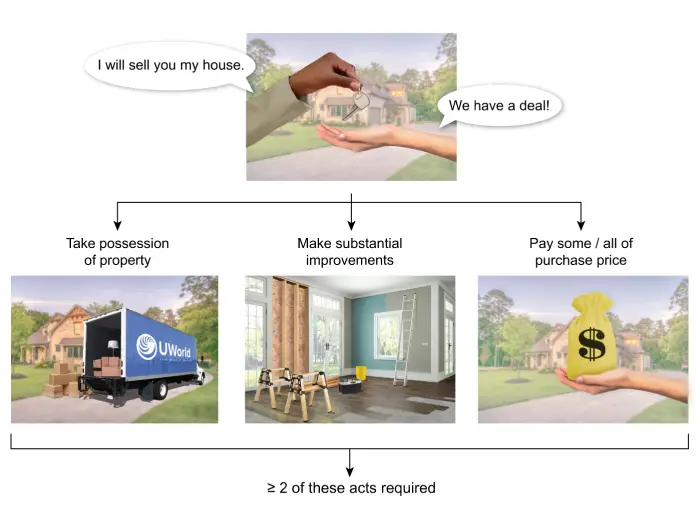Bar Exam Requirements, Cost and Fees
Bar exam fees, laptop fees, character and fitness costs, and commercial bar prep courses can cost law school graduates anywhere from $2,000 to north of $10,000. This stark variation in cost exists because every jurisdiction sets its own bar exam fee schedule, deadlines, and requirements. Read on for an overview of bar exam requirements, cost and fees, and advice on how to save and spend your money wisely.
Bar Exam Requirements
The information below is general and applies to most jurisdictions. Check with the appropriate board of bar examiners’ website or navigate to one of UWorld's jurisdiction-specific pages (see fee table below).
Most jurisdictions require a Juris Doctorate (JD) or a Bachelor of Laws (LL.B.) from a law school accredited by the American Bar Association (ABA) or approved by the jurisdiction. However, there are exceptions. For example, California, Vermont, Virginia, and Washington offer alternative paths to the bar exam through apprenticeship or law office study programs.



MPRE® requirements
The Multistate Professional Responsibility Examination (MPRE®) measures a candidate's knowledge and understanding of the ethical standards of the legal professions as outlined in the ABA Model Rules of Professional Conduct, the ABA Model Code of Judicial Conduct, constitutional decisions, and generally accepted principles in leading cases.
The MPRE is a prerequisite for bar admission in every US jurisdiction except Puerto Rico. Connecticut and New Jersey will accept a "C" or better in a course in Professional Responsibility from an ABA-approved law school in lieu of a passing MPRE score. All other jurisdictions have unique policies regarding when you must achieve a passing score, which may be before or after you take the bar exam.
Learn More
- About MPRE
- MPRE Study Guide
- MPRE Dates and Schedule 2024
- MPRE Registration, Eligibility, Cost & Fees
- MPRE Scoring
| MPRE Minimum Passing Scores by Jurisdiction | |
|---|---|
| Score | Jurisdiction |
| 75 | Alabama, District of Columbia, New Jersey, Pennsylvania, Virgin Islands |
| 77 | South Carolina |
| 79 | New Hampshire |
| 80 | Alaska, Connecticut, Illinois, Indiana, Iowa, Kansas, Kentucky, Maine, Missouri, Montana, New Mexico, North Carolina, Oklahoma, Rhode Island, Vermont, West Virginia |
| 82 | Tennessee |
| 85 | Arizona, Arkansas, Colorado, Idaho, Maryland, Massachusetts, Michigan, Minnesota, Nebraska, New York, North Dakota, Ohio, Oregon, Texas, Washington, Wyoming |
| 86 | Utah |
Most jurisdictions don't impose residency requirements for taking the bar exam or obtaining licensure. Instead, the focus is on an applicant’s legal education and character and fitness assessment. Graduates of foreign law schools typically must establish educational equivalency with ABA standards and have actively practiced law for a minimum number of years. Many jurisdictions also want to determine that an applicant intends to establish their legal practice in that jurisdiction.
Read more about foreign eligibility for the bar exam.
Every jurisdiction requires some kind of character and fitness investigation. The NCBE hosts applications and conducts investigations for most jurisdictions. Candidates are evaluated on past conduct, criminal record, financial responsibility, honesty, and integrity to ensure that they can be trusted to uphold the high ethical standards of the legal profession.
You’ll need to provide a detailed personal history, undergo background checks, and sometimes appear before a committee to discuss potential issues. Processes, deadlines, and requirements vary, but the overarching goal is to admit individuals into the legal profession who will serve the public morally and ethically.
Bar reciprocity refers to the ability of licensed lawyers in one state to practice law in another without taking that state's bar exam. However, you still may have to jump through hoops: character exams, extra courses, state-specific exams, etc. Many jurisdictions have reciprocity agreements with others. Those that don't have formal reciprocity often have policies allowing for admission on motion (or admission without examination).
Suppose you’ve passed the bar and obtained licensure in one jurisdiction but want to practice in another. In that case, you can typically apply for some form of admission with an examination (often called admission on motion). Transferring between UBE jurisdictions is more straightforward and is handled by NCBE Score Services. Even so, each jurisdiction has unique policies regarding reciprocity and admission on motion.

Bar Exam Registration Cost Fees
The cost of registering and studying for the bar exam ranges from hundreds to thousands of dollars. Each jurisdiction has a unique fee structure, but you can save on registration fees for most bar exams by applying early to avoid late fees. Keep in mind that some jurisdictions have a separate fee schedule for character and fitness investigations (C&F fee). See the tables below for state-specific fee schedules.
UBE Registration Fees
| Jurisdiction | First-Time Takers | Attorneys | Repeaters | Laptop fee |
|---|---|---|---|---|
| Alabama | $575 (plus C&F fee) | $575 (plus C&F fee) | $575 | $107 |
| Alaska | $850 | $850 | $550 | $125 |
| Arizona | $580 (plus C&F fee) | $580 (plus C&F fee) | $580 | $125 |
| Arkansas | $1,000 | $1,000 | $1,000 | $0 |
| Colorado | $710 | $710 | $410 / $510 | $0 |
| Connecticut | $800 | $800 | $800 | $125 |
| District of Columbia | $232 (plus C&F fee) | $232 (plus C&F fee) | $232 (plus C&F fee) | fee varies |
| Idaho | $600 | $800 | $200 / $300 | $125 |
| Illinois | $950 – $1450 | $950 – $1,450 | $500 – $850 | $120 |
| Indiana | $250 | $250 | $250 | fee varies |
| Iowa | $550 / $800 | $800 | $550 (non-attorney repeaters) / $800 (attorney repeaters) | $122 |
| Kansas | $700 | $700 | $700 | $0 |
| Kentucky | $875 / $1,125 / $1,375 | $1,200 / $1,450 / $1,700 | $325 | fee varies |
| Maine | $600 | $650 (plus C&F fee) | $600 (non-attorney repeaters) / $650 (attorney repeaters) (plus C&F fee) | $110 |
| Maryland | $750 | $750 | $400 | $130 |
| Massachusetts | $815 | $815 | $815 | $175 |
| Michigan | $400 (plus C&F fee) | $400 (plus C&F fee) | $300 | varies |
| Minnesota | $600 | $1,050 | $600 | $100 |
| Missouri | $560 – $1,400 | $560 – $1,400 | $560 – $850 | $125 |
| Montana | $620 (plus C&F fee) | $875 | $310 | $125 |
| Nebraska | $490 / $590 (plus processing fee) | $490 / $590 (plus processing fee) | $225 / $490 / $590 (plus processing fee) | $100 |
| New Hampshire | $725 | $725 | $725 | $52.50 |
| New Jersey | $675 | $675 | $675 | $0 |
| New Mexico | $750 | $750 | $500 / $750 | $100 |
| New York | $250 / $750 | $250 / $750 | $250 / $750 | $100 |
| North Carolina | $850 | $1,650 | $400 | $125 |
| North Dakota | $150 (plus C&F fee) | $150 (plus C&F fee) | $150 (plus C&F fee) | $110 |
| Ohio | $452 | $452 | $452 | $121 |
| Oklahoma | $650 (plus C&F fee) | $1,250 (plus C&F fee) | $650 (plus C&F fee) | $125 |
| Oregon | $750 | $1,350 | $750 / $1,350 | $150 |
| Pennsylvania | $650 | $650 | $650 | $115 |
| Rhode Island | $975 | $1,475 | $975 | $0 |
| South Carolina | $1,000 / $1,500 | $1,000 / $1,500 + $750 | $1,000 / $1,500 | $125.50 |
| Tennessee | $625 (plus C&F fee) | $625 (plus C&F fee) | $450 (plus C&F fee) | $100 |
| Texas | $300 / $490 / $1,140 | $1,040 / $1,140 | $320 | $90 |
| Utah | $550 | $850 | $550 (non-attorney repeaters) / $850 (attorney repeaters) | $200 |
| Vermont | $300 (plus C&F fee) | $300 (plus C&F fee) | $300 (plus C&F fee) | $0 |
| Washington | $585 | $620 (plus C&F fee) | $585 (non-attorney repeaters) / $620 (attorney repeaters) | $119 |
| West Virginia | $500 (plus C&F fee) | $800 (plus C&F fee | $500 (non-attorney repeaters) / $800 (attorney repeaters) (plus C&F fee) | $125 |
| Wyoming | $600 (plus C&F fee) | $600 (plus C&F fee) | $600 (plus C&F fee) | $77 |
| Virgin Islands | $1,100 (plus C&F fee) | $1,100 (plus C&F fee) | $500 / $500 | $150 |
Non-UBE Registration Fees
| Jurisdiction | First-Time Takers | Attorneys | Repeaters | Laptop fee |
|---|---|---|---|---|
| California | $850 | $1,500 | $850 (non-attorney repeaters) / $1,500 (attorney repeaters) | $153 |
| Delaware | $700 / $900 | $800 / $1,000 | $700 / $900 | $100 |
| Florida | $1,000 | $1,600–$3,000 | $450 | $125 |
| Georgia | $400 / $550 + $96 (MBE + MPT) | $550 + $30 (MPT) | $400/$550 + $96 (MBE + MPT) | $105 |
| Hawaii | $500 (plus C&F fee) | $500 (plus C&F fee) | $500 (plus C&F fee) | $133.50 |
| Louisiana | $850 / $975 | $975 | $975 | $125 |
| Mississippi | $525 / $825 | $825 (plus C&F fee) | $550 | varies |
| Nevada | $755 | $1,055 | $755 (non-attorney repeaters) / $1,055 (attorney repeaters) | $150 |
| South Dakota | $450 | $450 | $450 | $100 |
| Virginia | $1,150 | $1,150 | $750 / $1,150 | $125 |
| Wisconsin | $450 / $850 | $450 / $850 | $450 | $125 |
| Guam | $800 | $800 | $800 | — |
| Northern Mariana Islands | $500 | $1,000 | $500 (non-attorney repeaters) / $1,000 (attorney repeaters) | — |
| Palau | $300 | $300 | $300 | — |
| Puerto Rico | $250 | $250 | $250 | — |

How you prepare for the bar exam may be the difference between failing, achieving your dream score, and just squeaking by. Bar prep courses are an investment. Choose a product that publishes transparent results, proving its efficacy. Remember that the number of questions matters less than how well those questions reflect those on the actual exam and the quality of answer explanations. Also consider that some courses include hard-copy books, while others charge extra.
Students who completed at least 75% of Themis’s Bar Review course had a 12% higher pass rate than the state-wide average for the July 2023 UBE.
Learn More
- How to Select the Best Prep Course
- Themis + UWorld vs Others
- Themis + UWorld vs Barbri
- UWorld vs Adaptibar
Depending on your proximity to a testing center, you may have to plan for accommodations and meals. You can save money by booking accommodations early and staying somewhere with kitchen facilities to save on eating out. Check the appropriate board of bar examiner websites as some include recommendations on accommodations.
If you require accommodations under the Americans with Disabilities Act (ADA) or similar provisions, there may be additional costs related to medical documentation or assessments to support your request. However, bar examiners should not charge additional fees for the accommodation (e.g., extra time, a separate room, or specialized equipment).
Cost-Saving Options
- Browse the AccessLex Institute Law School Scholarship Databank
- Check out the ABA website, which offers 100+ opportunities and programs for young lawyers and law students
- Search “scholarships” or “grants” and site:(the website(s) of your law school or law schools in your jurisdiction). For example: scholarships site:uworld.com
- Join a study group and split the cost of bar exam preparation materials among group members
- Research free or low-cost online study materials like past bar exam questions and answers to supplement commercial study aids
- Some bar exam prep companies offer discounts or promotions to students who register early or refer friends to their program
